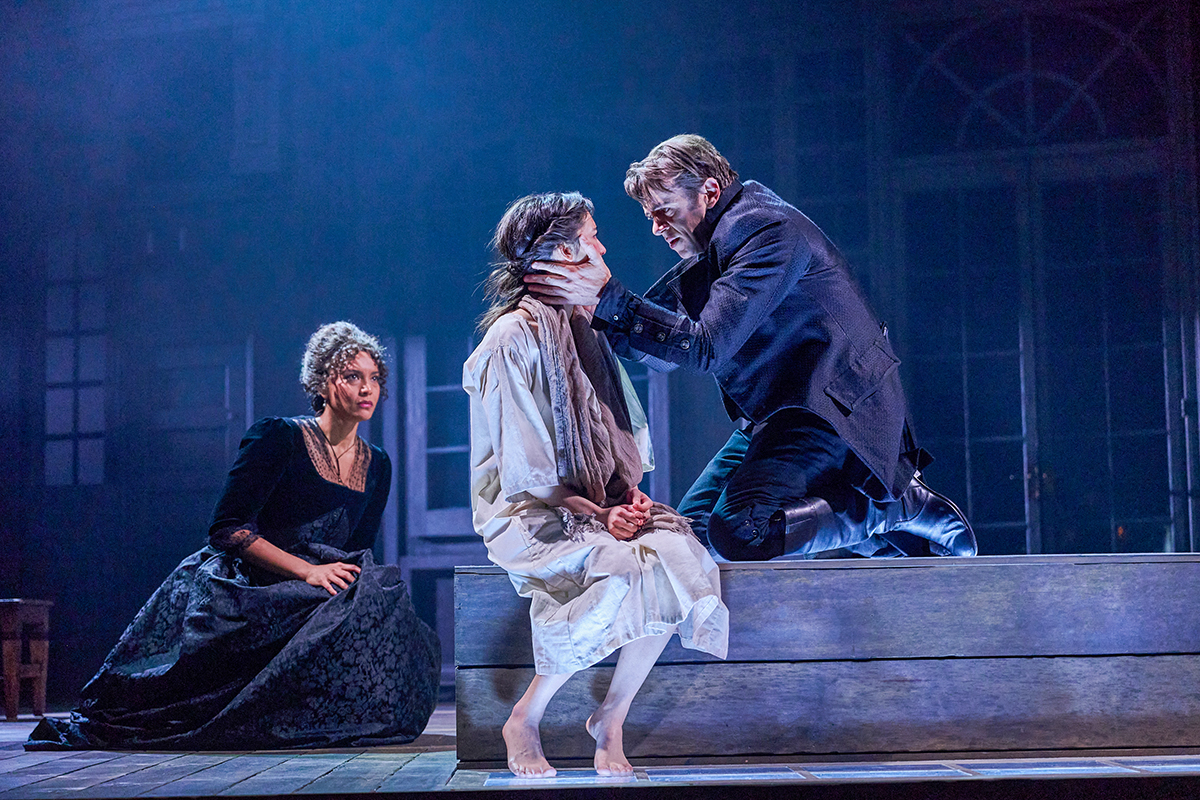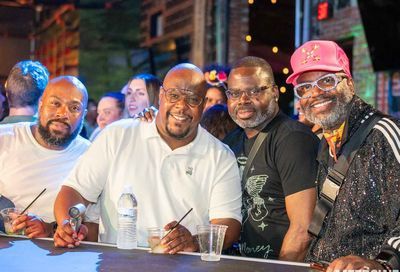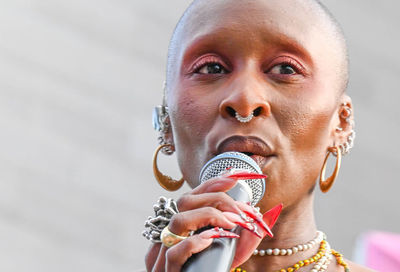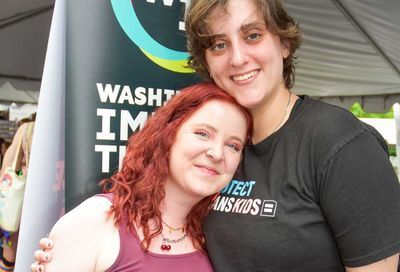BillT for Dance
Tony-winning Kennedy Center honoree Bill T. Jones has found great success in dance and the theater without sacrificing his revolutionary spirit
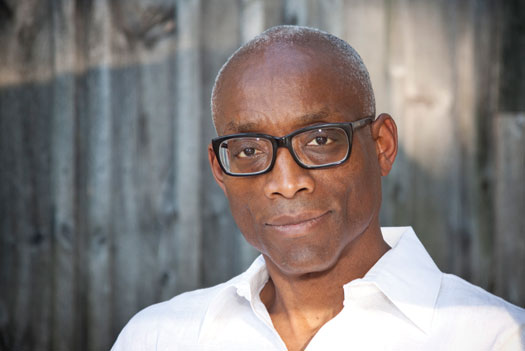
Bill T. Jones
(Photo by Christina Lane)
MW: So you took time out of your last-minute preparations of A Rite to watch the inauguration?
JONES: It’s funny. I had back-to-back interviews starting at 10 a.m. and going until 1 p.m. A wonderful writer from Chapel Hill called just as the president was taking the oath. I told her that he was about to deliver the inaugural address. I asked her if I could call her back. She said, ”You know, I’m watching it as well.” So we both took a break and watched it. And really, when she came back on, I was another person. The emotion the address had stirred up really fueled our discussion. But also, it shed a needed light of encouragement on what we are sort of trying to do in our new piece A Rite.
A Rite is almost diametrically opposed in tone to the president’s speech, which is all positivity and so on. This piece is very dark. But it did focus what we are pushing against. What we are trying to describe, to say without saying it. Something about the piece that Stravinsky and Roerich made a hundred years ago was very much of its time. The piece that we’re trying to make now, using that music – and other music – is very much of our time. Is there a sacrifice in their work? Yes. A sacrifice was made and it’s very clear. Is there a sacrifice in our work? Yes. It’s not as clear. The excitement has been trying to negotiate this ambiguity in the piece. And of course the two companies, the two cultures, coming together to make it, struggling with this question, of sacrifice and meaning and art and so on. It has been its own reward, but there is that central question: What is our sense of the one and the many? The individual and the collective? I’m talking a lot at you, but these are the things that were brought up by that inaugural address here on the eve of our premiere in North Carolina.
MW: Do you wish you had been on the Mall, or involved in some way with the Inauguration and inaugural festivities?
JONES: Not at all, not at all! [Laughs.] I don’t like big groups like that. It felt, appropriately, staged-managed. Everything about it: the flag-waving, the multiculturalism of it, all of those things. All very well and good. It was spectacle. A necessary moment. But what I want to see is, let’s get down to business and make things happen. I don’t need to be there to rah-rah-rah. The president has my vote, and I have great respect for him and I want him only to succeed. I want him to succeed, not that we need it, but I want him to succeed because he’s a black man. And I want to show the world that he can be an exemplary president. I don’t need to be there in order to do that. No, I want to be here where I am, right now. Even right now as we’re talking, I have – what time is it now? In about half an hour I have to be in the theater, and that’s all I can think about today – getting in the theater and cleaning up that second act and getting this thing ready to show.
MW: You’re preoccupied, in other words.
JONES: I am, I am. Well, let’s say I’m focused. [Laughs.]
MW: I wanted to ask you to reflect a bit on the changes you’ve seen over the course of your career as a gay man, out from the get-go, even before the AIDS epidemic. It seems a lot has changed in just the past decade, especially.
JONES: Well, you know, yesterday was the first time we’ve ever heard a president in an inaugural address talk about – make at least two, if not three, references to us as gay people. We were sitting and watching it – I was sitting next to my companion, Bjorn Amelan, and we were watching it, and when he said, ”our gay brothers and sisters,” I immediately, without even thinking, gave the power salute. My hand shot up with a fist like that, without even thinking about it. And I was so moved that I was almost on the verge of crying. I felt a little ridiculous. We’re so thirsty for it. We’re still thirsty.
It is now real. When he says that, and everyone around the world heard him say that. And no matter if you’re a Christian with your Bible-held beliefs. No matter where you are, left, right or center. It is part of the public dialogue, big time now. We exist. We exist. Hallelujah, we exist. I’m thinking of the people – I live in a little suburban town in New York. And I’ve been there a long time, and nobody ever addresses it, but I think, they don’t have to whisper anymore about me and my companion being together. They know what we are. You don’t have to tell them. They know gay people exist. And what’s more, we exist for the president – which means that we exist for the country, and it’s in the history books. It’s scary! But it’s also exhilarating.
MW: And then the fact that he’s also the first African-American president….
JONES: Yes, and knowing the rampant problems of homophobia in the African-American community. This is the man who mentioned God – well, he mentioned God more times than I would. I don’t think God has a place in politics. But he does. So, he’s a father, he’s a God-fearing man. And he has made room for this concept in his world. What does that mean for other black folks? How is it playing in the churches now? Because you know we all had his back. Didn’t he take something like 93 percent of the black vote?
Now what percentage of that black vote is against gay marriage? Or has this biblical sense that gay marriage is an abomination? I know I have it in my family. I know I have people in my family who I can’t talk to now because they’ve been told by their pastors they cannot communicate with me. What does it mean that the president said that yesterday: ”gay brothers and sisters.” Yeah, it was a big thing. And on Martin Luther King’s Day. It was all very self-consciously done. Nothing this White House does is not thought through. You can fault them for that or praise them – I accept it. I think it’s just the way we have to behave in this media-tized, political era we find ourselves in. But, how is it playing now in all the constituencies? He kept saying, ”We the people.” That ”we” now includes me and my companion.
MW: And now people who go against you are going against the president. They have to factor that into their views now, to at least a certain degree.
JONES: Yeah, they do. And then we have to think about the president and his symbolic role. This president who represents the state of our democracy. Doesn’t he in a way? So it’s not being against the man personally, but it’s against this democracy. This man who represents us has said that ”we” has gay people in it. Now, are they going to be against that? But, yeah, we’ll see how it plays.
But also, what about climate change? What about the immigration issue? What about more money toward rebuilding infrastructure and education? Those are incredibly important. And he was articulating it in a very clear way. Yes, it did feel political. I don’t agree with the Republicans who say it was divisive. That’s absurd. But it was actually laying out, this is what our moment is. What are you going to do about it? That I found really exciting. But nothing was as exciting as the gay and lesbian.
Support Metro Weekly’s Journalism
These are challenging times for news organizations. And yet it’s crucial we stay active and provide vital resources and information to both our local readers and the world. So won’t you please take a moment and consider supporting Metro Weekly with a membership? For as little as $5 a month, you can help ensure Metro Weekly magazine and MetroWeekly.com remain free, viable resources as we provide the best, most diverse, culturally-resonant LGBTQ coverage in both the D.C. region and around the world. Memberships come with exclusive perks and discounts, your own personal digital delivery of each week’s magazine (and an archive), access to our Member's Lounge when it launches this fall, and exclusive members-only items like Metro Weekly Membership Mugs and Tote Bags! Check out all our membership levels here and please join us today!








